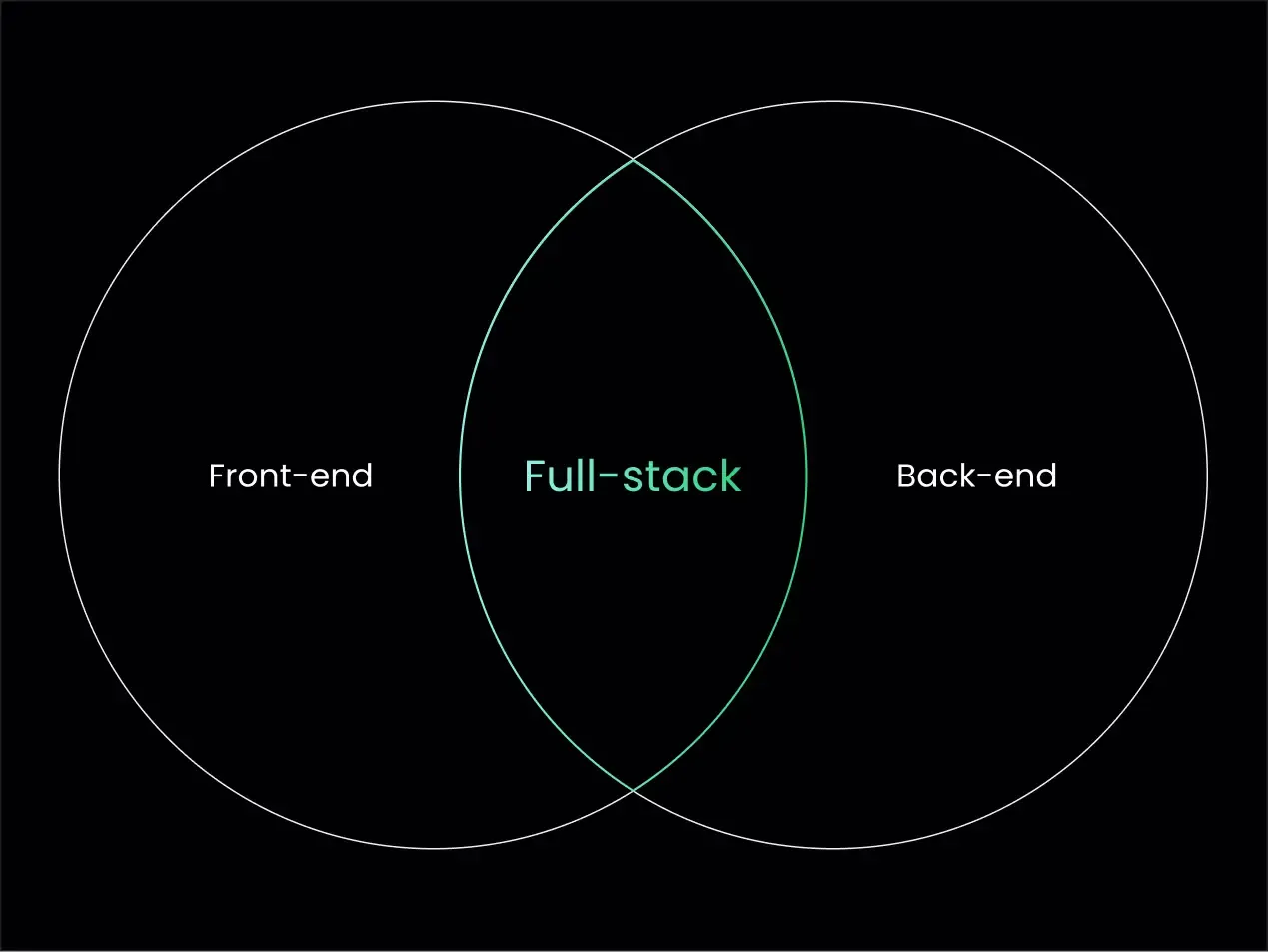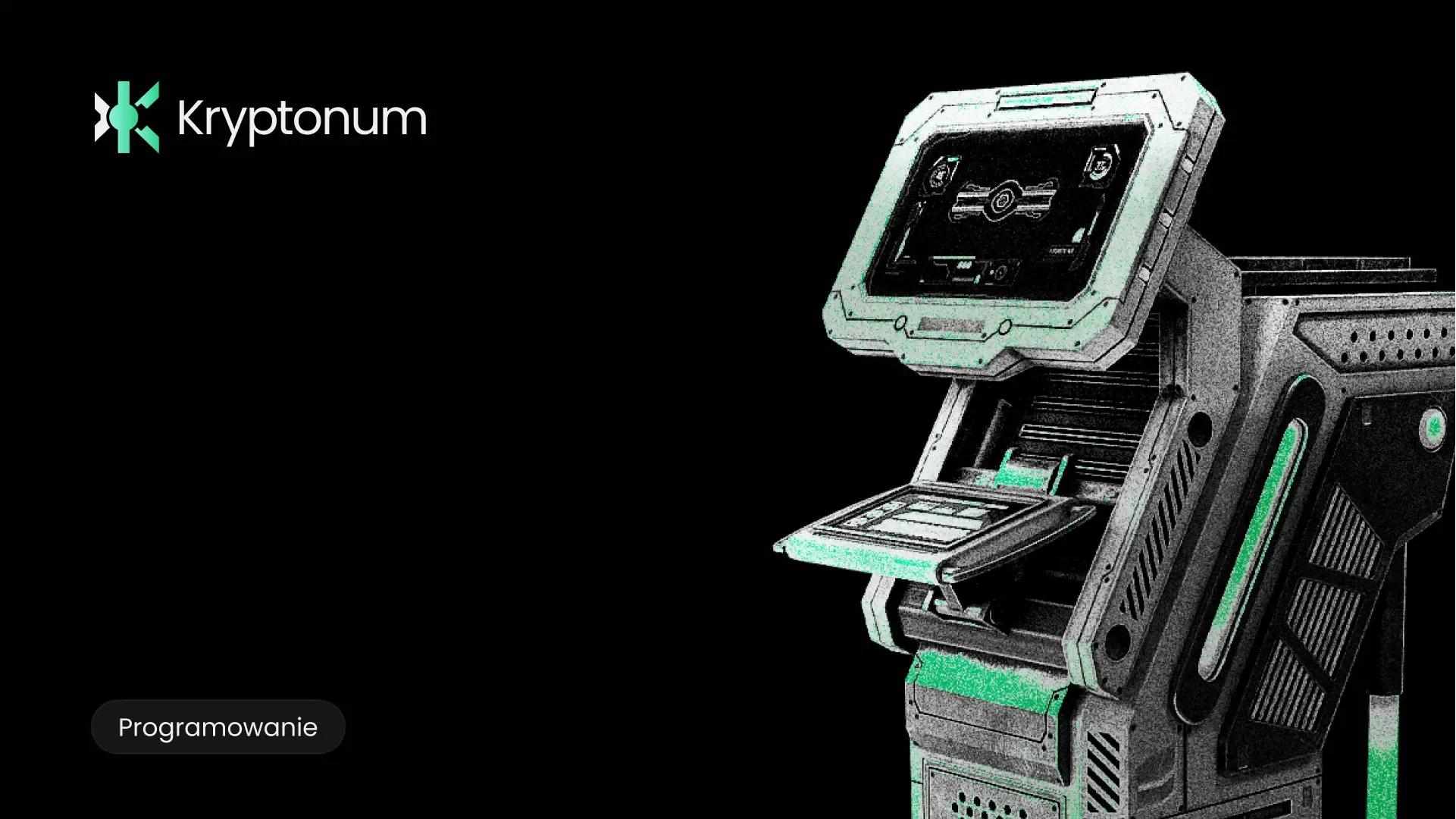❧ The Scope of a Web Developer’s Work – Who Exactly Is a Web Developer?
Ever wondered who this mysterious web developer actually is and what they really do?
In this article, you’ll find out what web development is all about and what the daily job of a web developer looks like. We’ll clear up the confusion around the craft of designing and building websites and web apps. And we’ll prove to you that coding is not some kind of dark magic reserved only for people who signed a pact with the devil 😉
Meet the fearless 🤠 slayer of slow websites – the one who makes sure your business doesn’t get lost in the digital wilderness!

❧ Web Development – What on Earth Is That?
Simply put, web development is everything that goes into bringing a website or a web application to life.
It’s mostly about creating the look and functionality of a site, but… it’s not just what you see on the screen! It also covers setting up databases, configuring servers, handling CDNs, SSL certificates, and integrating with other platforms.
Developers have the skills to manage the entire process of building, hosting, securing, and maintaining a website — which makes the role of a web developer incredibly versatile. Crafting a platform that runs like a dream and stuns with its layout requires teamwork from specialists across the IT world.
That’s the only way your website can become a true www-masterpiece of internet art! 🎨
❧ Who Is a Web Developer and What Do They Actually Do? 👨🏻💻 Specializations
A web developer is someone who wields programming languages like a samurai throwing shurikens.
There’s a natural split in this profession: front-end developers, whose mission is to design and build the user interface, and back-end developers, who focus on managing the business logic behind the site.
And then there are the brave ones who combine both worlds — the full-stack developers.
That’s like reaching the next level of mastery: a shogun who takes care of everything related to the back end (logic, databases, configuration, updates) while at the same time rocking the front end with intuitive and efficient interfaces 😉

A solid web developer should also be familiar with accessibility standards and SEO basics. Extra bonus points go to those with experience integrating websites with other platforms — think CRM systems or WMS (for logistics and warehouse management).
On top of coding, knowledge of good programming patterns comes in handy. Basic UI/UX awareness is a game-changer in a developer’s work — and the best way to learn it is through practice, especially when collaborating with skilled designers. Even some SEO knowledge and a touch of UX copywriting won’t hurt, although those aren’t usually a developer’s main responsibilities.
❧ What Does a Front-End Developer Do?
A front-end developer is the one who builds the face of a website or web application 👨💻
They implement the design and functionality based on prepared mockups. Strong coding skills in HTML, CSS, and JavaScript are the bread and butter here. Frameworks are their secret weapon — speeding up the workflow and boosting project quality.
Recently, frameworks like Next.js and Gatsby.js have been leading the way — and at Kryptonum, we absolutely love them! Front-end developers also optimize the performance of their apps, ensuring accessibility, SEO-friendliness, and smooth interactivity.
Compliance with WCAG? ✅
Technical SEO? ✅
Engaging animations and micro-interactions? Oh yes, that too!

❧ What Else Can a Web Developer Do? Skills Beyond Coding
Developers who ignore optimization and responsiveness won’t survive in the job market ☠️
Because what’s the point of a website if it takes ages to load and looks broken on mobile? It’s like expecting a mind-blowing Christmas gift, only to unwrap… reindeer socks, when you’re clearly team elves 🧝🏻. And worse, you have to wear them and pretend you’re thrilled 😅
A website that costs serious money needs to load like lightning ⚡ — on every device.
Special missions for developers often include database integrations or implementing online payments. A good web specialist knows that a website is a business tool with a clear purpose. They approach features through the lens of experience and can suggest the most effective solutions.
❧ Modern Web Development Technologies: From JAMstack to Serverless
Modern technologies are the daily bread of developers. They play a key role in creating innovative and high-performance websites.
Here are some of the big ones:
-
JAMstack Architecture
This approach relies on JavaScript, API integrations, and content served as markdown files. The result? Easy scalability, super-fast loading, out-of-this-world performance, and top-notch security.
-
Static Site Generators (SSG)
SSGs make websites load blazingly fast. Combined with caching and CDNs (Content Delivery Networks), they allow pages and apps to load instantly no matter where the user is located.
-
Server-Side Rendering (SSR)
With SSR, a site’s code is generated on the server before being sent to the user. This makes dynamic content easier for Google bots to read and allows personalization based on user preferences or permissions.
-
Next.js and Gatsby.js Frameworks
These popular JavaScript frameworks make it easier to build responsive, high-performance websites. Both support SSR and SSG — with the difference that Gatsby.js focuses on static sites. For e-commerce or projects with heavier logic, we usually recommend Next.js.
-
Serverless Architecture
This approach lets you build apps without managing your own server infrastructure. Instead, you use cloud functions that run only when needed, increasing scalability and flexibility.
-
Build and Testing Tools
There’s a whole toolbox of helpers here: Webpack, Vite, ESLint, Jest, Cypress — just to name a few. They help with code optimization, unit testing, automation, and end-to-end testing.
All of these modern technologies speed up development and boost performance. In practice, this means pixel-perfect designs, faster loading times, easier scaling, and fewer security gaps. Your website becomes the digital kingdom 👑 of your business.
And since the field is constantly evolving with new innovations, web development is only getting more exciting and full of opportunities for the future. Honestly? We’re super hyped about it! 🔥
❧ Want to Become a Web Developer and Start a Career in IT? Here’s Why It’s Worth It
This career path is full of growth opportunities—but it’s not a decision to make lightly.
You’ve got to feel it 😏
We hope this article gave you a clearer picture of what’s buzzing in the world of web development!
Need a killer website? Remember: you don’t buy a cow just because you want milk for your cereal—and you don’t have to learn coding from scratch either! All you need is to find an agency that offers full-service support and has experts in every IT niche 😉
Interested? Book a 15-minute call, and we’ll design a website tailored to your business.
We’ll handle everything needed to generate a steady stream of leads and ROI as rich as… 36% cream! 🥛✨
❧ Q&A: Frequently Asked Questions About a Web Developer’s Job
-
What does a web developer do?
A web developer creates websites and web applications—both in terms of design and functionality. Their job includes coding, optimizing performance, ensuring security, and integrating with other platforms.
-
What’s the difference between a front-end and a back-end developer?
- A front-end developer focuses on what the user sees — the design, layout, and interactivity of a website.
- A back-end developer takes care of the “behind-the-scenes” logic: databases, server communication, and processes that make the site actually work.
- A full-stack developer combines both roles.
-
What tools does a web developer use?
Their toolbox usually includes code editors (like VS Code), version control systems (Git), frameworks (Next.js, React, Node.js), testing tools, and project management platforms like Jira or Trello.
-
What skills are essential for a web developer?
Knowledge of programming languages (HTML, CSS, JavaScript, plus back-end languages), familiarity with frameworks, understanding databases, and knowing how to optimize code. Soft skills are also key: problem-solving, teamwork, and communication.
-
Do you need a degree to become a web developer?
Not necessarily. While computer science studies provide a solid foundation, many developers are self-taught or graduates of coding bootcamps. What matters most is practical skill, a portfolio, and experience.
-
How much does a web developer earn?
Salaries vary depending on experience, specialization, and location. Junior developers usually start with modest earnings, while experienced specialists can earn several times more than the market average.
-
What’s the future of web development?
The industry is evolving incredibly fast. Current trends include serverless architecture, JAMstack, artificial intelligence integrations, progressive web apps (PWAs), and automation. One thing is certain: demand for good web developers will only keep growing! 🚀
❧ Final Thoughts on Web Development
Web development is a dynamic field that offers huge growth opportunities. A developer’s role is far more than “just coding”—it’s about designing business solutions, ensuring accessibility, optimizing performance, and building experiences that users love.
Behind every polished, lightning-fast, and secure website stands a developer who put real passion into their work.
So whether you’re considering a career in web development or looking for someone to build your dream website—remember: the right developer is worth their weight in gold 💎

